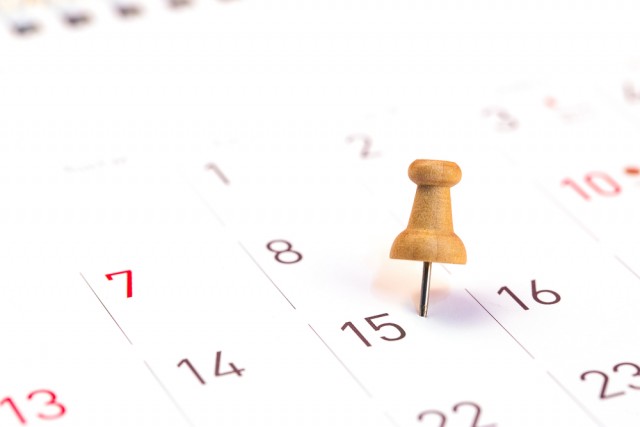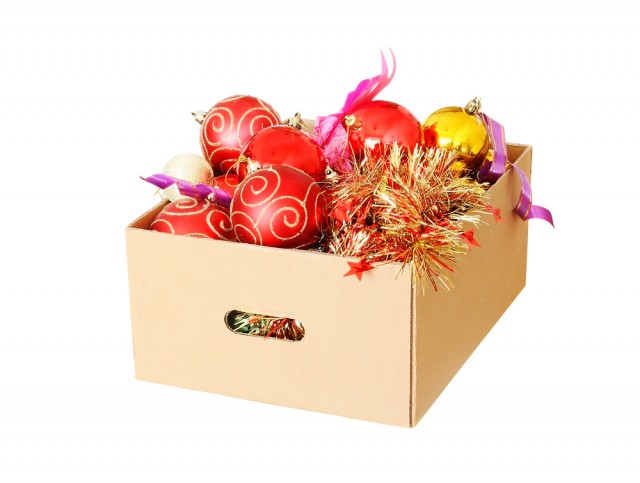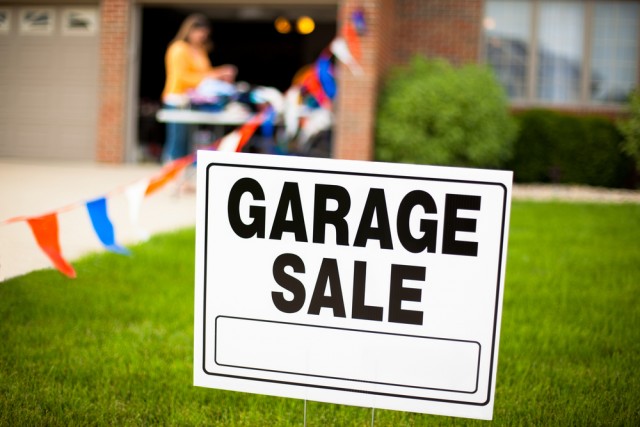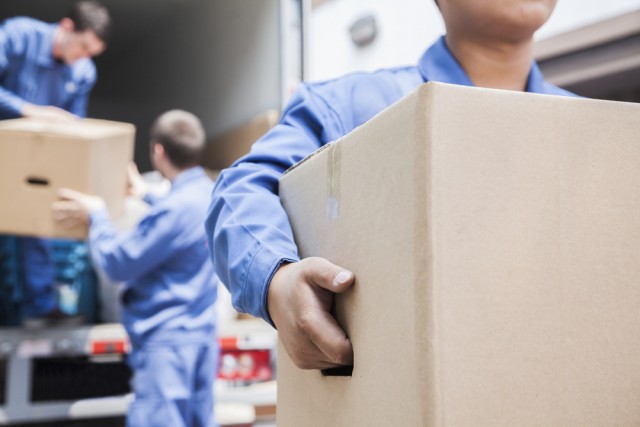Moving can be overwhelming, but it doesn’t have to be chaotic.
You’ve got to juggle scoring packing supplies and moving boxes, loading the rental truck, and unpacking it, all while adjusting to a new home.
There’s definitely some stuff you can organize and prep ahead of time, but there are other steps we can’t do until the day of the move.
Still, you can mentally prepare for all of it by creating a detailed moving checklist ahead of time, ensuring you don’t miss a single step.
In addition to the time it takes to pack, haul, and unpack your belongings, you also have to update utility companies with your new address and schedule utilities activation at the new place.
You may even have to transfer sensitive information, such as medical, financial, and school records, to new facilities.
Knowing how to plan your move can simplify the process, and Storage.com is here to help with a free printable moving checklist.
Our detailed moving checklist starts eight weeks before moving day, providing week-by-week steps, notes, and tips on what you need to get done.
Click the button below to download the free moving checklist, but don’t stop there.
The article below the printable checklist offers additional moving tips that can conserve your time and resources.We’ll also explain how Storage.com can help you prepare for the big day. We’ll even share some pro storage hacks you can use to save some money.
Download Our Free Moving Checklist!
8 WEEKS BEFORE YOU MOVE – START PLANNING YOUR MOVE

This week of your moving checklist is all about prepping a game plan for your move.
You want to ensure that everything regarding your new home is scheduled eight weeks ahead of time.
Start by triple-checking that all the legal documents are signed and ready for action. To make the legal process easier and more organized, create a file for all your moving-related documents and keep everything in one place.
Ensure all paperwork for your new home is completed, signed, and secure
A solid move-out plan starts with securing your new house or apartment- there’s no moving without a place to move to.
This means signing any house or apartment leases, paying your security deposit, ensuring your home loan has gone through, and completing any other paperwork with ample time to spare.
Determine whether you will move yourself or use professional movers
Moving on your own saves you money, and it can be done quickly if moving across town into a different neighborhood. But for a long-distance move where your multiple trips aren’t realistic, you might consider scheduling a full-service moving company to help you out.
Professional moving services offer benefits such as seasoned expertise, specialty lifting, and dollying equipment for safely moving heavy and fragile items.
You might also consider an optional packing service, in which pros come ahead of time to help you pack your stuff before moving day.
Research and request estimates from moving companies
Whether you only need help packing or think you need a full-service moving company, use review websites such as Yelp or even Google Reviews to hear about past customers’ experiences.
Create a budget for moving, which should include the cost of packing supplies, moving boxes, transportation, and the optional packing services or professional mover help
Moving budgets should start with an inventory list of expenses such as moving and packing supplies, shipping, a rental truck, and personal transportation.
Create a digital or hard file to track important moving documents such as receipts and important medical, dental, school, and financial records
Keep a digital or hard file in a secure, easy-to-remember location. It should be secure, as it’ll eventually include documentation of all your security and utility deposits and important medical, dental, educational, and financial records.
7 WEEKS BEFORE YOU MOVE – GATHER IMPORTANT DOCUMENTS

Week 7 of your detailed moving checklist will primarily involve assembling a list of items that will make up your moving file or digital folder. Start by collecting the necessary information for relocating.
If applicable, begin requesting and collecting medical, dental, prescription, and veterinary records
You’ll need to begin collecting medical information for a long-distance move or moving out of state. HIPAA gives everyone the right to copies of their medical records, but the process can still be lengthy, as the law allows up to 30 days for the healthcare provider to deliver the copies.
In some cases, providers can even request a 30-day extension, though they need to give a reason for needing the extra time.
Requesting medical records will also require filling out an authorization form. You may need to show a government-issued ID. Most non-critical care records should be received within 5-10 business days.
Compile copies of financial and legal records
.Like medical records, this can also take some time, so it’s important to begin collecting documents more than a month before your move.
Request school records to be transferred
If you’re moving into a new school district and have school-aged children, contact your current and new schools about the move and begin transferring educational records to the appropriate parties.
Cancel or transfer gym or health club memberships
Most gyms and health clubs require a 30-day notice of discontinuing services. Waiting too long to notify your gym of cancellation could result in being charged for an additional month of membership that will be left unused.
Contact the insurance agent to see if adjustments need to be made to a new policy
Your homeowners’ or renters’ insurance policy will change as you move into a new home. And even when it comes to your additional insurance policies, like medical and dental, you’ll need to change your address with agencies across the board.
Alerting your carriers of the change of address notifications early prevents stress from happening too much at once. Waiting til the last minute risks overlooking or forgetting important information or having mail go to the wrong place because they have the old address on file.
6 WEEKS BEFORE YOU MOVE – DECIDE WHAT STAYS AND WHAT GOES

Now that you’ve completed some initial planning and document retrieval, you can focus on prepping your belongings. We suggest packing in stages, and the first stage of that journey is decluttering and purging.
Week 6 of your free printable moving checklist focuses on organizing the items you plan to move and getting rid of household items you no longer use, need, or want.
Determine whether to ship or personally transport costly and personally valuable items
Many of the items you’ll be relocating during the move will have a high financial or personal cost if broken or lost.
Shipping services can often provide a secure and professional assurance that items will be relocated safely. However, some sentimental items, such as family heirlooms, may be worth moving yourself.
Begin taking inventory of all your items and separate them into nonessential, essential, and unneeded/unwanted items
Non-essential items are typically seasonal clothing, decorations, or even tools and equipment you won’t need in the weeks before your move. Essential items are belongings you’ll use regularly, such as eating utensils and cookware.
Unneeded and unwanted items can be anything you don’t use anymore because it’s broken or you’ve outgrown it, such as old but still usable clothing.
Discard broken, irreparable, or other unwanted items
Moving can be a great opportunity to clean your home of unusable and unwanted belongings.
Discard these items as soon as you can to avoid second-guessing and moving the clutter to your new home.
Begin planning a garage sale
A garage sale can be a great way to get rid of unwanted items and earn a few extra dollars.
We suggest you start with seasonal items and sell or donate anything that has been in long-term storage for more than a year.
Begin consuming perishables and using other products that can’t be moved or shipped
As far as food goes, start with items that have a short shelf life, such as fruits and dairy, and avoid stocking up on these items in the next few weeks.
Other products that can’t be shipped include flammables such as lighter fluid, poisons found in bug sprays, and aerosol cleaning products.
5 WEEKS BEFORE YOU MOVE – BEGIN PACKING SELDOM-USED BELONGINGS

With your belongings separated into essential and non-essential items, it’s time to start packing! Your fifth week will consist of gathering moving supplies, packing your items, and making important arrangements for the move.
Purchase or collect moving supplies
Most local retailers sell packing supplies such as cardboard moving boxes, bubble wrap, box-filling peanuts, and packing tape.
Supermarkets sometimes have leftover boxes, which they will give you for free because they otherwise have to pay to recycle. You can also use crumpled-up newspaper to help cushion items you will be packing.
Begin packing non-essential items and label boxes, including what room they will be placed in once moved, such as bedroom, kitchen, or living room
Since you probably won’t need your non-essential items, such as seasonal clothing, before the move, go ahead and pack them first. If possible, pack related belongings together, and be sure to label all of your boxes. This will make the process of unpacking and moving in easier in the long run, and you won’t have to later wonder, “Where did I pack that?”
File a change of address with the US Postal Service or request them to hold mail at the post office that serves your new neighborhood
While you still have a few weeks to go, notify the U.S. Postal Service that you’ll change your address so that your mail will no longer be sent to your current home.
Once you’ve moved into your new spot, the last thing you want is for any vital mail or credit card information to be shipped to your old address.
You could also request them to hold your incoming mail at the post office in the city you’re moving to.
4 WEEKS BEFORE YOU MOVE – NOTIFY UTILITIES AND MAKE MOVING RESERVATIONS

We suggest notifying your current utility companies of your upcoming change of address four weeks before the move. Then, we recommend applying for a service transfer to schedule utility activation at the new address.
If you’re moving long-distance, your current service providers might not provide services in your new neighborhood. You may have to research some new companies and pay utility deposits to schedule utilities at the new address.
Notify utility services at your current and new locations of relocation
Utility services you should contact include:
- Electric
- Water
- Gas
- Cellular/Telephone
- Cable/Satellite
- Internet
- Sewer
- Waste Management
- Post Office (Change of Address Form)
Make a reservation for a moving truck, professional movers, and any other additional moving services you might require
If you intend to hire a moving company to help you, now is the time to make a reservation with them. Remember, they operate according to a schedule, so the further in advance you reserve with them, the more likely they’ll be able to match their schedule with yours.
If self-moving, notify family, friends, and other help of the moving date
Recruiting family and friends to help with the move will prove less expensive than hiring professional movers, but you should still notify them to ensure they are available to help.
Have a garage sale for items in the unneeded/unwanted items
Now is the time to clear out any unneeded and unwanted items before your big move. Holding a garage sale for any remaining non-essential items can also help put some money back in your pocket.
If applicable, determine or make travel arrangements for pets
If you have any pets, talk to your pet care providers about the best way to transport them.
Four weeks ahead of time is also a good time to research veterinarian care for pets near the new residence. If your pets need extra love and professional attention after the journey, we suggest you do this before moving day.
3 WEEKS BEFORE YOU MOVE – GET RID OF ITEM’S YOU’RE NOT MOVING

Three weeks before moving day, your primary goal is to donate or dispose of the unusable items you could not sell in the previous week’s garage sale. This week will also include preparations to ensure a smooth moving trip.
Dispose of unused flammables, corrosives, poisons, and other items that can’t be shipped
Some companies will safely dispose of any flammables, corrosives, poisons–anything you cannot safely ship to your new location. It is better to replace these items at your new residence.
Donate or discard any unsold items from the garage sale
Now it is time to eliminate everything you couldn’t sell last week. While many people throw away anything they do not want to keep, you could always donate your belongings to Goodwill or some other community-serving organization.
Have your vehicles serviced
You don’t want to experience car trouble while traveling to your new residence, so make it a point to have your vehicles serviced this week.
We suggest checking your oil, air filter, windshield fluid, and tires at least three weeks before the big day to ensure everything works.
2 WEEKS BEFORE YOU MOVE – NOTIFY SERVICES OF YOUR MOVE

At this point in the moving process, it is time to notify services affected by your change of address.
Begin notifying the following services of the move:
- Financial and Legal Services:
- Accountant
- Attorney
- Bank/Credit Union
- Credit Card Companies
- Car Insurance Provider
- Car Loan Provider
- Financial Planner
- Medical Services:
- Doctor
- Dentist
- Veterinarian
- Health Insurance Provider
- Pharmacy
- Memberships and Subscriptions:
- Magazine Subscriptions
- Newspaper
- Video Streaming, such as Netflix, if you are subscribed to the mailing service
- Government Offices:
- Social Security Administration
- IRS
- Veterans Administration
If applicable, book a self-storage unit move-in date.
Moving can be complicated. It might take several days to finish unloading and unpacking, and you might want to save space by moving some extra belongings into a self-storage unit.
You can rent a storage unit for an entire month for the price of keeping the truck rental for one extra day–it’s cheaper to throw your stuff in a storage unit and return the truck than to hang onto the truck for extra time.
Most self-storage facilities prefer to schedule move-ins within a window of two weeks, so now is an ideal time to make a reservation! The staff can help you calculate the size and number of storage units you will need and will reserve the right one for your specified move-in date.
Confirm travel arrangements for family and pets
Since the big move day is approaching, confirm travel arrangements for your pets. Because your pets need attention and care, ensuring the time and safety of their transportation is an absolute must.
Confirm moving date with movers, friends, family, or other help
Confirm travel arrangements for your belongings with the moving company, friends, family, or whoever will assist you.
Create a meal plan for the next two weeks, aiming to consume all perishable foods in the current home
You’ll be busy unpacking and situating yourself in your new home for the next few weeks, so take this time in advance to formulate a meal plan. Create a plan that covers the next two weeks and includes all perishable foods you won’t take.
Assemble a file of important information about the current home for the next owner
Take the time to collect all important documents and information about your home store that is available for the next owner.
1 WEEK BEFORE YOU MOVE – MAKE THE FINAL PREPARATIONS

By this point, you should be well-prepared to move. This final week before moving day is all about making the final preparations and ensuring that you have everything ready to go.
Review your moving plans
Take the time to review your moving checklist and make sure that everything applicable to your situation was completed or scheduled. If you missed something, take care of it right away.
Give your new address to friends and family
Make sure all of your loved ones know your new address so they can send you mail or visit once you are settled in.
Pack remaining essential items
During this week, you will still need to pack up everything you need to get through the week. Things like current clothes, select toiletries, and other items can be boxed up once you’re done with them for the week.
Pack personal essentials in a box to keep nearby during the move
Keep a few items in an easily accessible box during the moving process. You don’t want to dig into the back of a moving van to find a toothbrush!
Fill out any prescriptions needed during the move
If you have any prescriptions, you’ll want to ensure they are filled before you begin moving so you don’t have to worry about it in the middle of your move.
Drain gas, oil, and other fluids from lawn care equipment, grills, heaters, etc.
The best way to drain gas is to run these items until they run out. Be sure to use appropriate containers when draining oil.
Drain water from hoses
If applicable, drain all water from your hoses this week and give them plenty of time to dry out.
Take measurements of doorways and furniture to ensure furniture can fit through
Sometimes, you can’t remember if you moved furniture into your home in one piece or assembled it in the living room. Measure doorways and furniture to see what will fit and what will need to be disassembled.
Empty the refrigerator of any food products and defrost at least 24 hours before moving
Hopefully, you haven’t purchased too many groceries leading up to this week because this is the time to either eat or toss them. If you need help eating the food, invite some friends over for a small going-away party and enjoy a smorgasbord of food.
Deep clean your living space
If you are moving from an apartment, deep cleaning your entire apartment will give you a better shot at returning your damage deposit. Cleaning your living space is an expected courtesy if you move from a house.
MOVING DAY

The day has finally arrived!
Be present to supervise moving.
If you’re using a moving company, take time out of your day to supervise the move. They’re the experts, so you’ll have to let them do their thing, but attendance helps ensure you know what is going on.
Place and use carpet, floor, and door frame protectors throughout the home
Protect your old home from scratches and dings during the moving process so you don’t have to spend additional time and money making repairs.
Load items in the truck in a pre-determined order, preferably grouped by room where they will go in their new home
With all of your boxes clearly labeled, this should be a simple process that will help everything go smoothly from start to finish.
Give every room and closet a last look over to ensure nothing is left behind
Start at one end of your home and methodically move throughout every room to check for anything you may have accidentally left behind. If necessary, call the moving company to have shipments picked up.
Leave new owners a note with a new address to forward any stray mail
The USPS also allows you to set up a forwarding address online, so this step can be taken care of fairly easily.
MOVING IN

You’re not done yet! You still have to move everything in and unpack before your new home feels like a home.
Unload items directly into the room they are labeled for, such as the bedroom, kitchen, or living room
This is why labeling is essential. If everything is appropriately labeled, this process should be super easy. Be sure to stack boxes out of the way to keep unloading quickly.
Check over items for any move-related damages
This is especially important if you use a moving company. Notify them right away if they damaged something during the move.
Pick up any mail being held at the new local post office
If you think you may have received some mail already, you can check your new post office to pick it up in person.
Begin organizing your new home
Start by organizing items in shared spaces, such as the kitchen, living room, and bathrooms, and then move on to organizing the bedrooms.
Order pizza to celebrate a successful move
This is also universally accepted currency for paying family and friends who helped you with the move.
AFTER THE MOVE

Once everything has been moved and put into place, a few steps remain to help you get fully situated.
Compile all moving-related receipts and documents and place them in a moving file to store in an easy-to-remember location in your new home
By keeping all of this information in one spot, you will be able to easily track your expenditures and know the total cost of the move.
Update your driver’s license and vehicle tags
You’ll want to take care of this as soon as possible since you are encouraged to get it done 30 days after you move. Be sure to bring two forms of your new address. In many states, receiving a new driver’s license can take a couple of weeks.
Meet your neighbors
Make a good first impression by giving your new neighbors a gift, like some homemade treats.
How Storage.com Can Help Lower the Cost of Moving
Moving is an intricate process with a lot of steps. We suggest starting at least eight weeks in advance so you can knock these crucial tasks out in stages rather than scrambling to get it all finalized the week before the big day.
And the cost of moving adds up quickly, which is another reason why spacing out the work, and the associated expenses, is beneficial.
But are there any other tricks you can employ to cut down the moving costs? And how are you supposed to get a head start on packing up all your belongings while you still have a month or two left of living in the old place before it’s time to move out?
Don’t worry, Storage.com is here to help. Even if it takes longer than a month to get situated in the new pad, you can often rent a storage unit for a whole month for the same amount of money a truck rental costs for a single day!
One of the cheapest and easiest ways to get a head start on moving is to secure one storage unit next to where you live now so that you can pack and prepare before the big day.
You can then use our search tool to find a second unit near your new address using the zip code of your new home.
Whether you need one storage unit or two, our Storage.com search tool makes finding ideal facilities for self-storage as easy as entering your zip code, filtering the options, and scrolling the results until you find exactly what you need.
Interstate moving costs add up fast, so it’s important to get it all right the first time by staying organized, packing beforehand, and storing your belongings in a safe space during downtime.


![Relocating RVs: An Expert Guide to Finding RV Relocation Deals and Cheap Motorhomes for Rent [2025]](https://blog.storage.com/wp-content/uploads/2025/03/rv-relo.jpg)



